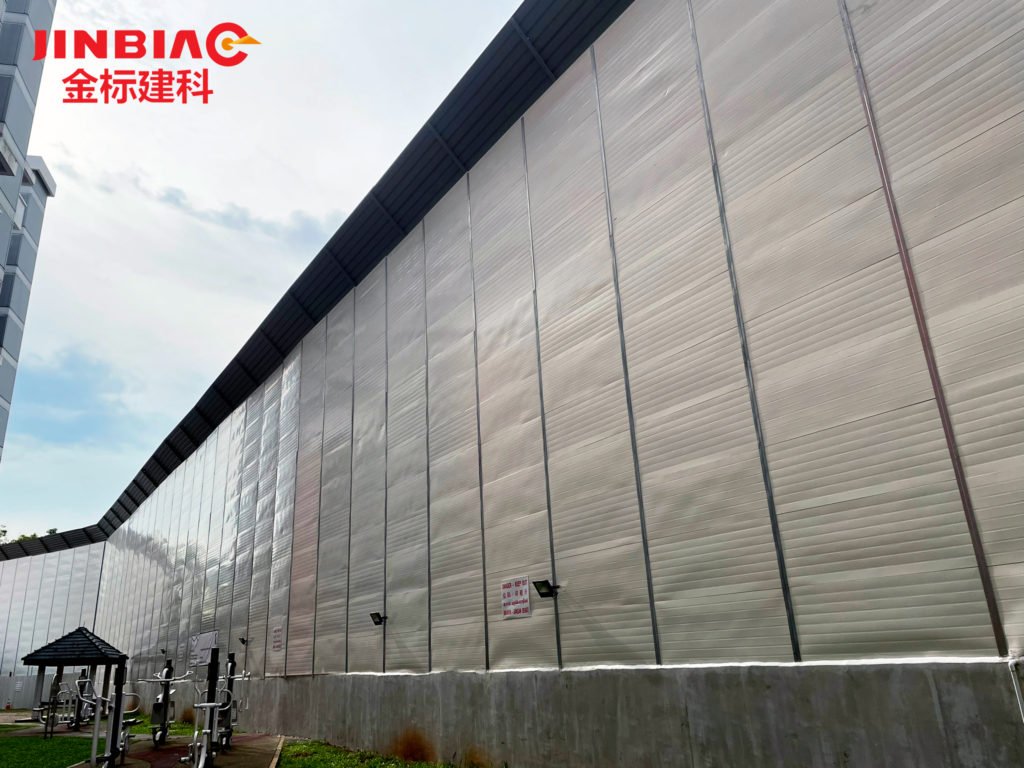
Sound barriers are physical structures that prevent sound waves from traveling to unwanted areas. In aviation, these barriers come in different shapes and sizes, but all serve the same purpose of reducing noise levels. In this blog post, we will explore how the aviation industry uses sound barriers to reduce noise pollution.
The aviation industry is constantly seeking ways to mitigate the impact of aircraft noise pollution on communities residing near airports. One effective measure used by the industry is the installation of sound barriers.
Noise barriers are specially designed structures to reflect or absorb sound waves and reduce noise levels. In the aviation industry, sound barriers are used to reduce the impact of noise caused by aircraft during takeoff, landing, and taxiing. The effectiveness of sound barriers depends on several factors, including their height, distance from the source of noise, and the material used in their construction.
One of the ways the aviation industry addresses the issue of noise pollution is by using sound barriers, such as acoustic insulation for communities near airports. Noise from airport operations, particularly landing and takeoff, can be highly disruptive and negatively impact the well-being of people living in close proximity.
Acoustic insulation materials are designed to reduce the transmission of sound waves from the airport by absorbing, reflecting, or canceling noise. These sound barriers can be installed in various ways, including building structures, walls, or soundproof windows. The use of acoustic insulation for communities near airports is a proactive measure that demonstrates the aviation industry’s commitment to being a good neighbor and minimizing the environmental impact of its operations.
Physical structures used as sound barriers can be designed to absorb sound energy, preventing or reducing the transmission of noise to the surrounding environment. Structural materials such as sound-absorbing panels, foam insulation, and acoustic ceiling tiles are frequently used for this process. These materials are designed to trap and absorb sound waves, converting sound waves into heat.
Sound barriers are of critical importance to the aviation industry when it comes to reducing noise transmissions through air. One of the key applications of sound barriers in aviation is to minimize the impact of aircraft-generated noise on nearby communities. This is particularly relevant in the vicinity of airports, where noise pollution can be a significant issue for residents.
The reduction of noise transmissions through air is achieved through the use of sound barriers, which are physical structures designed to dissipate sound waves and reduce their intensity. Sound barriers can take a variety of forms, including walls, fences, berms, and enclosures, and can be made using a range of materials, including concrete, metal, wood, and synthetics. These barriers may be installed around airports and along runways to help dissipate noise, making the sound more tolerable for people living in the surrounding area.
In addition to their primary function of reducing noise pollution, sound barriers are also used to improve air traffic control operations in the aviation industry. By reducing noise levels near airports, sound barriers allow for clearer communication between air traffic controllers and pilots. This is particularly important during critical times such as takeoff and landing, where clear communication is essential for safe operations.
Hebei Jinbiao is a leading company in Noise Barrier products and Fencing products in Singapore. We guarantee to provide you with the most high-quality Sound Barrier and Fencing products along with our dedicated assistance. Do not hesitate to contact us. We are looking forward to helping you solve your noise issues, safety issues and protecting you from noise pollution as well as ensuring your safety.